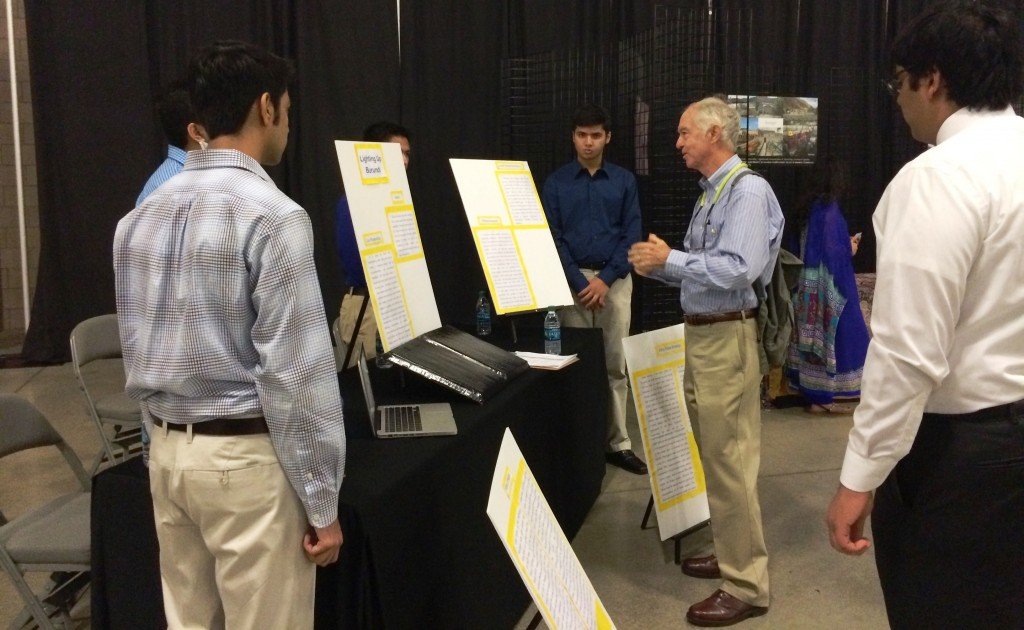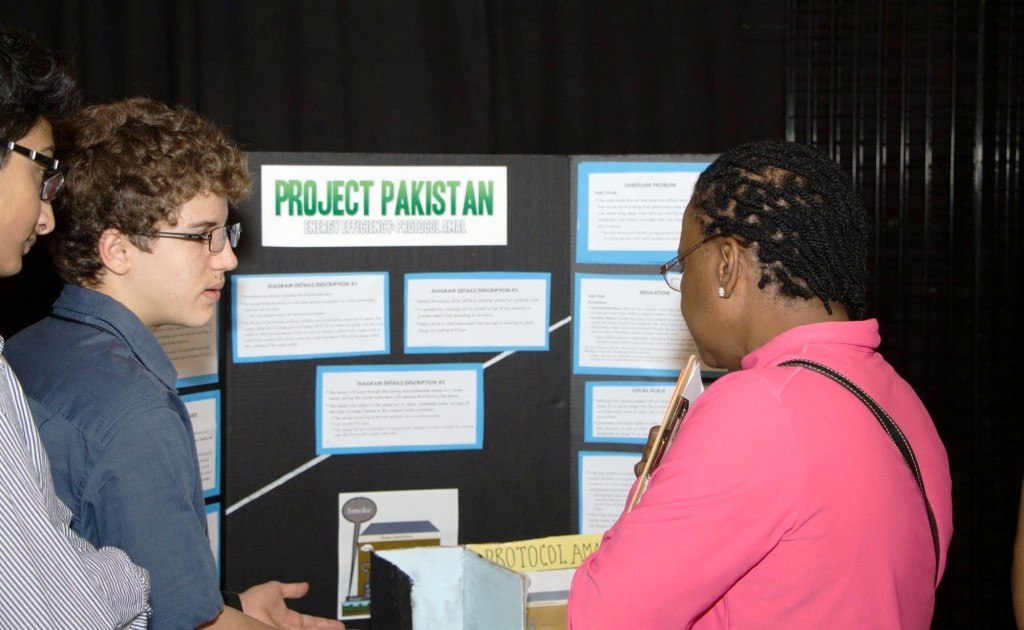Often we in the U.S. respond to reports of global poverty with emotions and words of sympathy. Our desire to help is a faint flame that lacks the spark of transformation. In an attempt to provide that spark, the Dallas Youth Ambassadors, volunteers with the Aga Khan Foundation (AKF), have initiated an annual Innovative Solutions Challenge. The Youth Ambassadors were inspired by AKF projects internationally, including one in Central Asia (documented in the film Milk and Hope), where the Foundation partnered with the U.S. Department of Agriculture to provide a daily serving of milk to 50,000 schoolchildren in Tajikistan and Afghanistan. Instead of simply providing short-term food assistance, the project leveraged resources to promote self-reliance through improvements in education, nutrition and local infrastructure of the dairy and livestock industry. As a competition for high school students, the Innovation Challenge provides youth with an opportunity to apply their knowledge in a practical and globally minded way.
Teams collaborate to solve real-world issues faced by developing countries and create innovative solutions. For the first competition held in 2014, teams could choose to address the issue of water in Mali, energy efficiency in Pakistan, education quality in Kenya, disabled children’s access to education in Zanzibar, or a challenge of their choice. The judges used rigorous criteria to assess each team’s performance. How would the project be sustained? How would the community be involved? What if the community didn’t accept the project? Who would supply the resources? These were just a few questions that teams had to consider. Each team’s solution was critiqued based on originality, potential impact on the community, implementation feasibility, sustainability, and overall presentation. The finalists’ solutions were exhibited at the Village in Action display of the 2014 Dallas Partnership Walk, where they were judged by three esteemed professors from the University of North Texas.
Total prize awards of $500 were shared by the first- and second-place winners and a special prize was awarded as a people’s choice award. All participating teams were recognized for their efforts during the awards ceremony. Although young, these high school students proved that they are ready to do their part to make this world a better place for all. First place was awarded to Project Pani, an initiative by Kunz Mainali and Waseem Shabout from North Hills Preparatory, for providing a clean water source through filtration and purification in Nepal. Project Pani’s innovation truly shined through its environmental friendliness, cost-efficiency, and focus on promoting economic growth in the community. The judges applauded Project Pani’s commitment to make their vision a reality by traveling to Nepal and partnering with the Ministry of Health to develop a prototype.
“The AKF Challenge was a captivating experience that challenged not only my abilities as a problem-solver, but also as a humanitarian,” said Kunz. The runner-up was Project Pakistan: Protocol Amal by Sana Altaf, Ameer Ahmed, Alexander Bogdan, Angela Kannookkadan, Pallavi Vayalali, and Priyanka Vayalali, also from North Hills Preparatory. They addressed energy efficiency in Pakistan with the introduction of an innovative stove. Inspired by a similar project implemented by the Aga Khan Foundation, Project Pakistan attempted to enhance their stove’s effectiveness by incorporating locally replaceable components into the design. They also designed a more efficient way of simultaneously purifying water while providing heat for the home. Another unique component of this challenge competition was that while it fostered global thinking, it also promoted the idea of acting on a local scale. Each solution had to include a local applicability aspect in its design.
This is the kind of mentality — thinking globally and acting locally – that motivates the Dallas AKF Youth Ambassadors in their constant efforts to raise awareness of the Aga Khan Foundation’s work, through local projects coupled with partnerships with corporations and Dallas area schools. Our hope is to make a meaningful impact along the way, whether that comes in a child’s smile, a parent’s tear of joy, or in high school students coming together to make a difference. See you at the 2015 Innovative Solutions Challenge! For more information about the 2015 competition, contact: akfyadallas@gmail.com.
By Sahil Noorani, Aga Khan Foundation Youth Ambassador, Dallas


